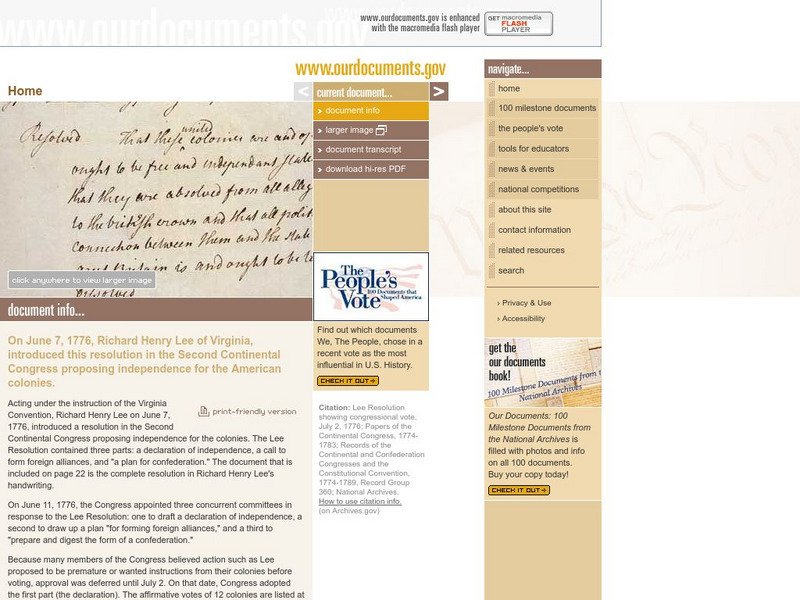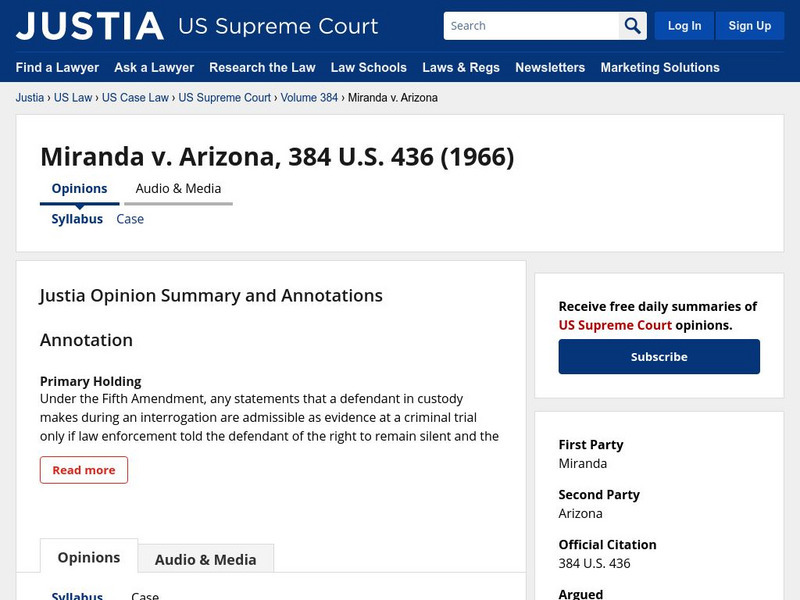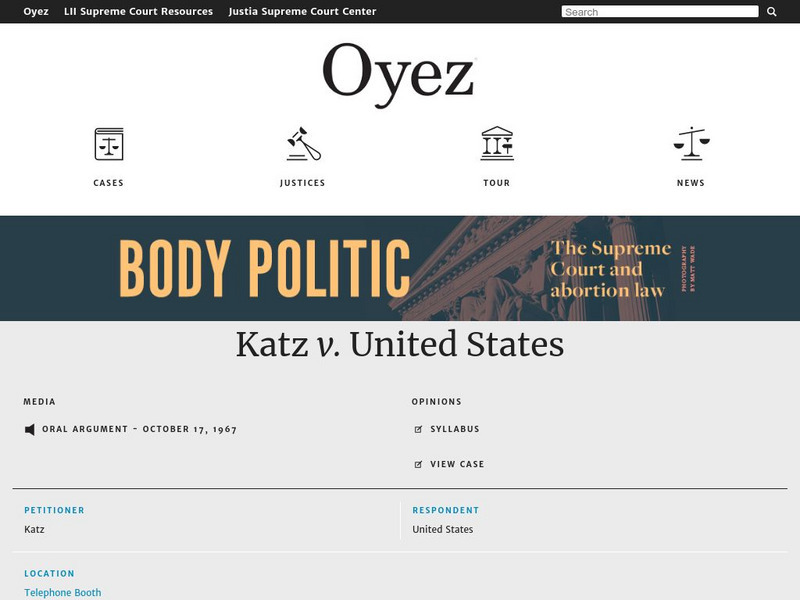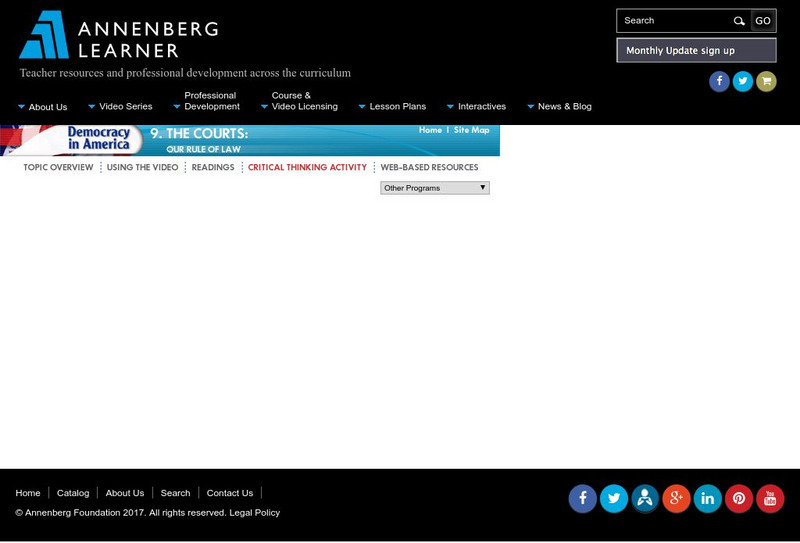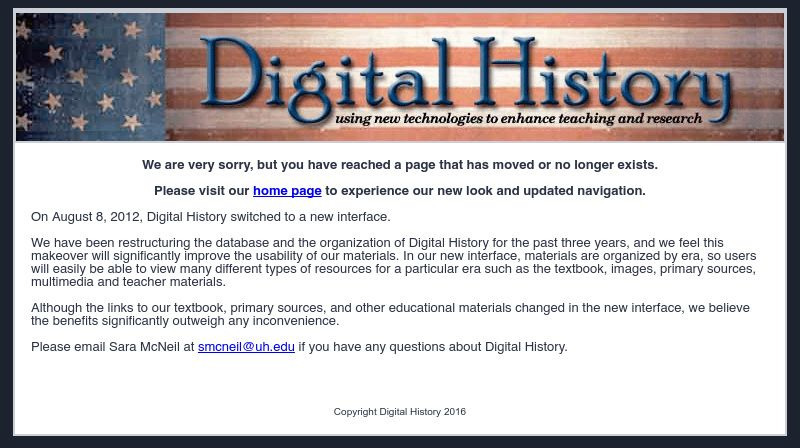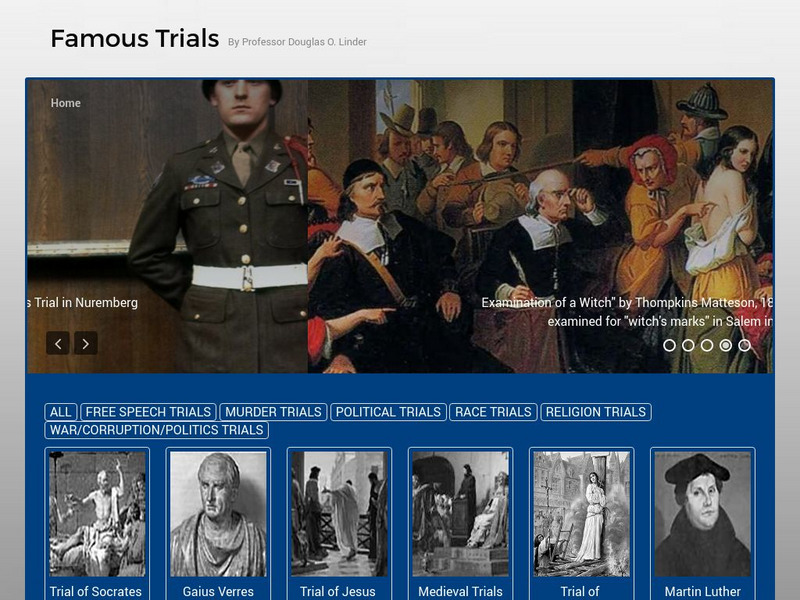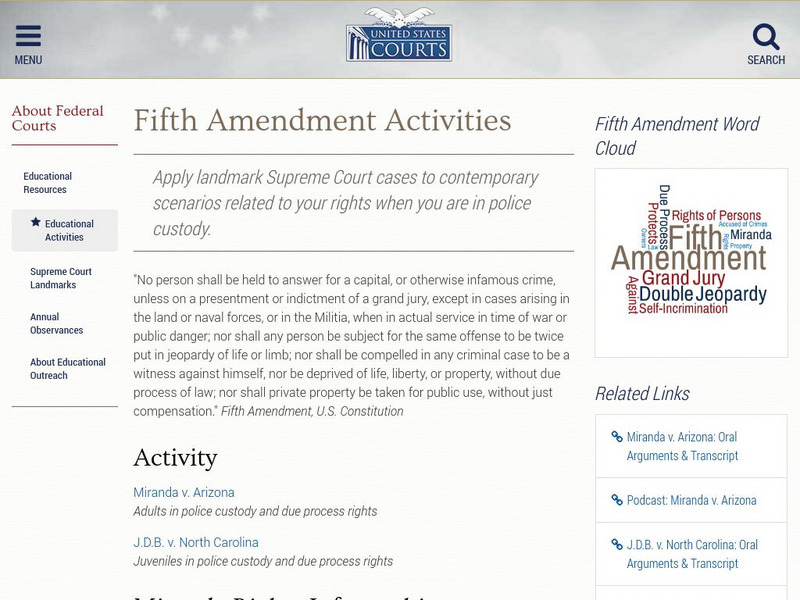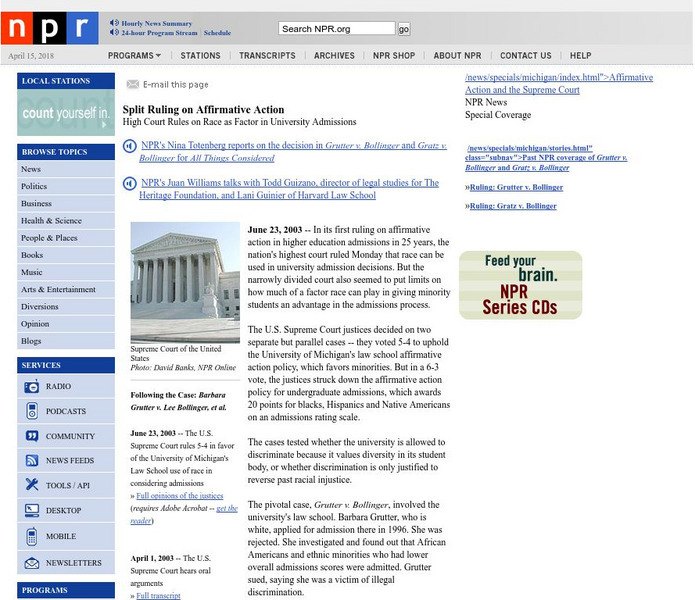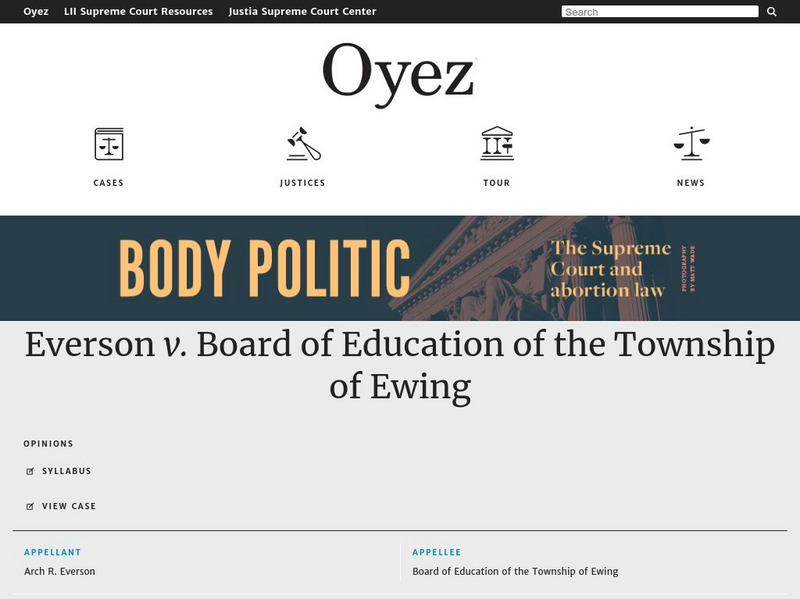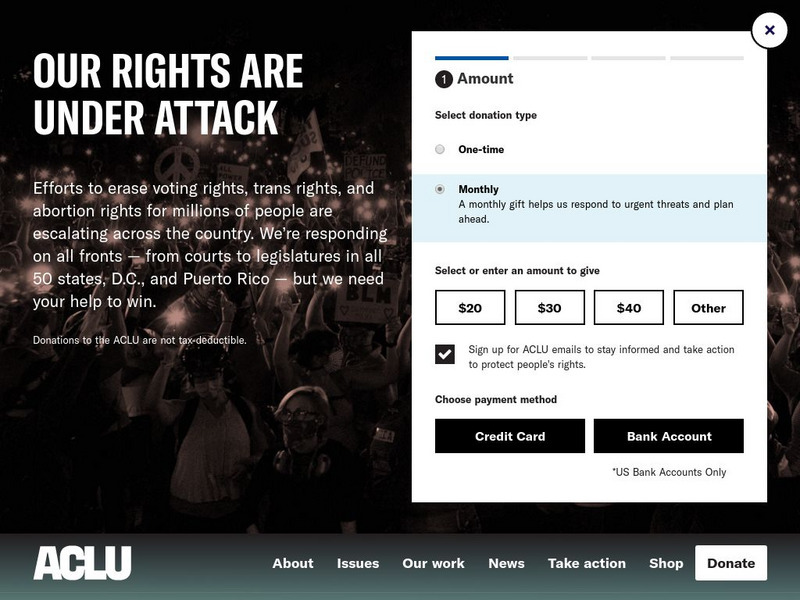Curated OER
Nmah: Separate but Equal: The Law of the Land
Photo of Supreme Court judges who decided Plessy v Ferguson
US National Archives
Our Documents: Plessy v. Ferguson (1896)
Learn about this landmark Supreme Court case on the issue of racial discrimination . Provides an image of a document from the case files and a transcript of the opinion delivered in 1896 by Justice Henry Brown "which sustained the...
Yale University
Yale New Haven Teachers Institute: History of Child Labor in the United States
Read this brief overview of child labor and exploitation and the attempt at reform before delving into the Supreme Court case, Hammer v Dagenhart, which overturned the Keating-Owen Child Labor Act. Included are six lesson plans based on...
US Government Publishing Office
Ben's Guide to u.s. Government: Constitution of the United States
Find background information on the Constitution of the United States of America, and learn the three basic principles upon which the Constitution was written. Additional content includes a look at the text of the Constitution, the events...
Other
U.s. Supreme Court: Miranda v. Arizona, 384 u.s. 436 (1966)
A complete and in-depth history of the 1966 U.S. court case of Miranda v. Arizona.
Thomson Reuters
Find Law: u.s. Supreme Court: Swann v. Board of Education (1971)
The decision for Swann vs. Board of Education of Charlotte-Mecklenburg, concerning the integration and desegration of public schools.
University of Groningen
American History: Outlines: The Basis of the American Republic
Overview of the U.S. Constitution as the supreme law of the land enduring through changing times and ever increasing diversity over the last two centuries.
Bill of Rights Institute
Bill of Rights Institute: Additional Amendments
The Constitution contains within itself the process of changing it. The amendment process is described in Article 5. Amendments can be proposed in Congress when 2/3rd of both Houses agree. The states can play a role in proposing changes...
Illinois Institute of Technology
The Oyez Project: Katz v. United States
Katz v. United States altered the meaning of the 4th Amendment, the right to search and seizure, appealing his case in 1967 regarding the investigator's use of electronic surveillance. Oyez features the facts and recordings from the...
Annenberg Foundation
Annenberg Learner: The Path of a Case
You just graduated from law school and want your first case to go all the way to the Supreme Court. Read some case summaries and pick a case you think will make it to the Supreme Court.
Digital History
Digital History: Thurgood Marshall
Thurgood Marshall was one of the most important figures in the civil rights movement. In this biographical account, follow the steps of Marshall from his days as a law student at Howard Law School, to his victories as chief counsel for...
Digital History
Digital History: The New Deal in Decline
The Supreme Court, in 1935 and 1936, found unconstitutional several programs that were the backbone of the New Deal. See how President Roosevelt tried to deal with these setbacks, and the results both for him personally and for the law.
iCivics
I Civics: Loving v. Virginia (1967)
This mini-lesson covers the basics of the Supreme Court's decision that struck down state bans on interracial marriage. Students learn about the 14th Amendment's Equal Protection Clause, and its use in court cases to challenge a range of...
University of Missouri
Famous Trials
This site looks at famous trials in American history. Trials that shaped American society and changed America's laws.
Digital History
Digital History: War on the Judiciary
The Judiciary Act of 1801 was a final attempt by the Federalists to control the judicial system before the Democratic Republicans took over. Read about the repeal of the act, which resulted in a landmark Supreme Court decision, Marybury...
iCivics
I Civics: Changing the Constitution
America's constitutional government has changed over time as a result of amendments to the U.S. Constitution, Supreme Court decisions, legislation, and other practices. Students will use the seven basic principles found in our government...
Other
Us Courts: Fifth Amendment Activities
Two activities and lesson plan apply landmark Supreme Court cases on the Fifth Amendment and the right to due process or fair trial for adults and juveniles accused of a crime.
Boston College
Boston College: Freedom of Speech: Court Decisions: Roth v United States
Transcript of a Supreme Court decision, from 1957, in Roth v United States, a case that weighed constitutional freedoms of speech and the rights of individuals to own and distribute materials deemed by the government to be obscene.
Georgia Humanities Council and the University of Georgia Press.
New Georgia Encyclopedia: Worcester v. Georgia (1832)
Discussion of the lawsuit filed by Samuel Worcester against the state of Georgia protesting the way the state handled the Cherokee lands. The case went to the Supreme Court where although Chief Justice Marshall ruled in favor of the...
NPR: National Public Radio
Npr: Split Ruling on Affirmative Action
This multimedia site explores the Supreme Court reaction to affirmative action cases in university admissions policies. There are links to audio clips and various related articles.
Other
The Alliance: Review of in Re Gault
This article provides an easily understandable description of the 1967 U.S Supreme Court case involving Gerald Gault.
Illinois Institute of Technology
Oyez: Everson v. Board of Education
Brief account of the Everson v. Board of Education Supreme Court case. Gives dates, facts, questions, and conclusion.
Other
Aclu: American Civil Liberties Union
Official home of the American Civil Liberties Union (ACLU). Learn about American news, what's going on with the Supreme Court and new legislation, and more at this online interest group.
Boston College
Freedom of Speech in the United States: De Jonge v. Oregon
In this site you will find the Supreme Court decision in the case De Jonge v. Oregon from a text, Freedom of Speech in the United States.



